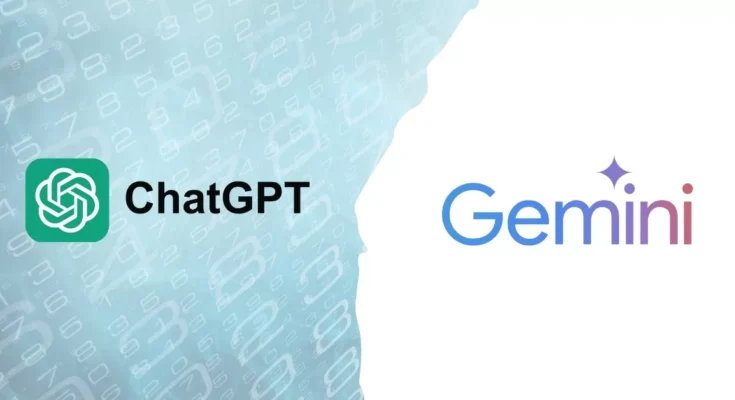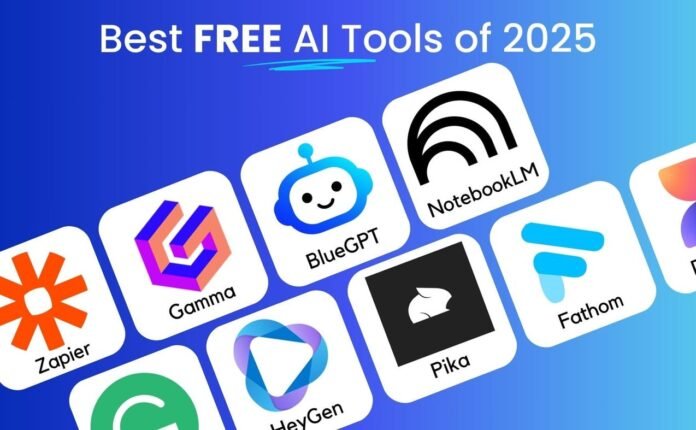Two primary contenders dominate the generative AI landscape in 2023: ChatGPT (OpenAI) and Gemini (Google DeepMind). As businesses, developers, educators, and everyday users all begin to integrate AI into their lives, it is imperative to understand the capabilities and limitations of each platform. So as we sit here in 2025, what do we know about ChatGPT versus Gemini? Here’s a detailed comparison across pertinent areas of comparison.
Background
ChatGPT (created by OpenAI) started up in late 2022 and quickly became a cultural phenomenon. The latest premium version, ChatGPT-4 (at the time of writing in 2024), runs on a model called GPT-4-turbo, which promises greater performance and efficiency.
On the other hand, the Google equivalent to ChatGPT is called Gemini (it was formerly referred to as Bard). The most advanced version, Gemini 1.5 (released in early 2024), is part of Google DeepMind’s project to construct state-of-the-art multimodal AI.
1. Model Intelligence & Performance
ChatGPT (GPT-4.5 / GPT-4-turbo / GPT-4.1 API)
And the winner is ChatGPT! ChatGPT uses the most advanced version of the technology for productivity and cognitive work: GPT-4-turbo (also known as GPT-4.5). ChatGPT uses an architecture proprietary to OpenAI, but what we do know is its outputs are considered fluent, creative, and logically coherent and consistent, particularly in professional or technical tasks, which is more than one can say for all of its competitors!
Google Gemini (1.5 Pro/Ultra)
In 2024, Gemini 1.5 Pro hit the news cycle with
Long story short, Gemini 1.5 Pro’s capabilities in reading, analyzing, and summarizing large documents, utilizing text, images, and videos, and combining modalities made an instantaneous impression on the world at scale. On benchmarks, Gemini Ultra exceeded (or excelled at) GPT-4-level performance on its academic tasks and reasoning tasks.
✅ Winner: Tie
ChatGPT has slightly better conversational flow and creative writing performance; Gemini has marginally better multimodal comprehension and answer stability in long-context reasoning tasks.
2. Multi-Modal Capabilities
ChatGPT
ChatGPT Plus can analyze images with GPT-4 Turbo. Users can also use tools such as code interpreter, web browsing, and document uploads. Video and more advanced image analysis are still limited to experimental applications like Sora from OpenAI.
Gemini
Gemini was designed for multimodality. It accepts input of text, code, audio, images, and even video natively, and frequently in combination. For instance, Gemini can watch a short video, analyze it, and explain the context or summarize events, which ChatGPT has only just begun to contemplate.
Winner: Google Gemini
3. User Interface & Experience
ChatGPT
ChatGPT’s web app is slick, fast, and uses tools such as DALL·E, Python, and web browsing (for Plus users). The memory feature lets ChatGPT recall user preferences and style over time and adjust to provide the user with an increasingly personalized experience. ChatGPT also integrates deeply with Microsoft Office and Teams through Copilot.
Gemini
Gemini’s interface is clean enough, but it is more fragmented at present, and it is distributed across Android, Google Search, and third-party services. The mobile integration with Gemini (especially on Pixel) is more integrated than on ChatGPT Plus but does not have the same refined user interface and tool integration as offered through ChatGPT Plus.
Winner: ChatGPT
4. Integration ecosystem
ChatGPT
OpenAI’s collaboration with Microsoft has enabled the integration of ChatGPT into Windows products, Office, and Azure. It is backing a plugin ecosystem (ChatGPT tools) and has an API that developers utilize a lot (including Microsoft’s own use of it!).
Gemini
Google is integrating Gemini into Workspace (Search, Gmail, Docs), Android, and Google Cloud’s Vertex AI with Gemini Pro. The enterprise appetite for Google integration is already well-established.
✅ Winner: Depends if you are using it
- in business/enterprise (Gemini, especially if you use Google Workspace) or all other use cases (ChatGPT).
5. Costs and access
ChatGPT
The free tier utilizes GPT-3.5; the paid tier allows use of GPT-4-turbo, is only $20/month (ChatGPT Plus), and provides use of tools, memory, and reasoning.
Gemini
Gemini Advanced (with 1.5 Pro) is also $20/month (bundled with Google One AI Premium). Free users get older Gemini versions but have limited access.
✅ Winner: Tie
Pricing is officially similar for premium tiers; however, OpenAI offers more integration with tools, and power users should also be considered when selecting a winner.
6. Reliability and Trust
ChatGPT
OpenAI has made progress on its transparency around model versions and safety features. However, for some enterprise users, having more control over data is a requirement, and ChatGPT has that option, mainly through its API and via versions hosted on Azure.
Gemini
Google has extensive infrastructure and search experience, which grants Gemini better uptime and stereoscopically better management. However, Gemini’s answers sometimes seem more curated/filtered, which sometimes decreases its genuine transparency.
✅ Winner: ChatGPT (for greater openness), Gemini (for scale)
7. Memory and Personalisation
ChatGPT:
ChatGPT has memories (turned on by default for most users), so it can remember things over spans of time, personalize every experience, and learn and improve from each experience. You can even change it if it remembers incorrectly.
Google Gemini:
Gemini has rudimentary personalization, and it can retain context during a single session but does not support what ChatGPT refers to as a memory.
The winner is ChatGPT because it has a much more sophisticated and transparent memory system.
Final Verdict: Who Wins?
- ChatGPT is clearly ahead when it comes to creative tasks, complicated reasoning, natural conversations, and support for developers.
- Google Gemini shines when it comes to sourcing real-time information, integrating Google services such as YouTube, and search-type tasks.
Overall Winner:
ChatGPT (just by a hair)—It has more advanced dialogue capabilities, more polished multimodal-type tools, and more refined personalization capabilities. But Google Gemini is standing up well and is clearly closing the gap.
AI is common with most tech rivalries; who wins will depend on your needs. The best AI for you will be the product that fits into your daily workflow, be it tied to Google or Microsoft daily. That said, presentation-style AI is a win-win for users, who are benefiting the most from the competition driving forward these platforms.



